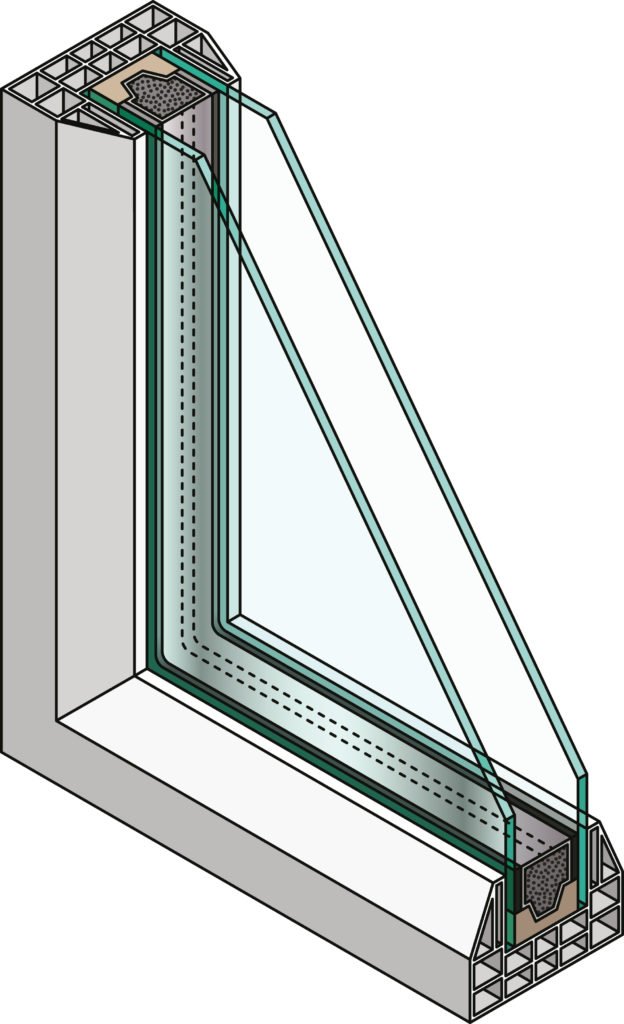Best Home Energy efficient Ideas
Energy-efficient homes combine cutting-edge energy-efficient construction, appliances, and lighting with commercially available renewable energy solutions like solar water heating and solar power. You may often combine passive solar heating and cooling as well as energy-efficient landscaping solutions by taking advantage of the local temperature and site circumstances. The goal is to minimise household energy consumption as much as is feasible to achieve while still meeting the reduced demand with on-site renewable energy installations.
Whether building a new home or updating your current home, read on for tips on how to lower your energy costs and improve cooling and heating efficiency. This should really begin with identifying what you need to remedy.
Find leaks Using a Thermal Camera
Using a thermal camera will quickly identify problem areas to prevent energy loss. It can also detect other issues such as mould or moisture build-up that could be hazardous to your family's health.
Seal The Gaps
Sealing gaps causing leakages is a simple and low-cost approach to save energy. Consider installing weatherstripping around the frames to seal air leaks in and around your home's windows and doors. You can also apply silicone caulk to any drywall cracks.
An airtight home can help you save money on electricity while also protecting your health. Internal air escapes and outside air enters more easily when there are fewer leaks in your home. This means that your heating and cooling systems won't have to work as hard in high temperatures.
The following areas are considered the most efficient for air sealing:
Weatherstripping windows and doors
Sealing HVAC (Heating, Ventilation, and Air Conditioning)
Attic hatch
Wall inserts for pipes
Update Your Windows
Insulated windows can keep cool air in during the summer and heated air in during the winter. Replacing old, draughty windows is a more expensive project, but it will save you money in the long run. Double or triple glazing, particularly with argon gas instead of air between the layers, will give excellent thermal resistance and acoustic insulation. The voids between the panels operate as an insulating layer, providing a sound and heat barrier.
Upgrade Your Electrical Appliances and Lighting
Lighting: Use Energy-Efficient Light Bulbs:
It is generally inexpensive to replace standard incandescent lights with more energy-efficient alternatives. Because most energy efficient light bulbs live longer than incandescent bulbs, you'll save money in the long run by not having to replace them as often. Compact fluorescent lights (CFLs) use less than two-thirds of the energy used by traditional bulbs and last ten times longer. LED bulbs are also long-lasting and come with Alexa and Google Assistant integration possibilities.
Appliances: Replace with Energy Star Products:
Refrigerators, televisions, stoves, washers, and air conditioners that are Energy Star certified meet the EPA's energy efficiency standards. Energy Star-qualified appliances consume 10 to 50% less energy than normal appliances, reducing glasshouse gas emissions.
Install Water Saving Shower Heads
Installing low-flow showerheads increases the water efficiency of your house, whilst also good for the environment and cost-effective. You'll save money on your water bill from using less water and saving money on the energy used to heat the water.
Install Solar
Installing solar is a common method for heating hot water and generating power for households. Solar panels offer several advantages. They help you save money on energy costs over time, encourage you to use less fossil fuel, and may even help you qualify for yearly tax benefits.
General Cost Savings Tips
Switch off lights when not in use
Switch of / unplug electrical items when not in use
Wash clothes in cold water
Wash dishes in a bowl, not with the water running until you rinse
Insulate your roof
Clean or change your HVAC filters
Install skylights to provide natural lighting
Install block out curtains or blinds for additional insulation
Install a natural gas-boosted solar storage hot water system







